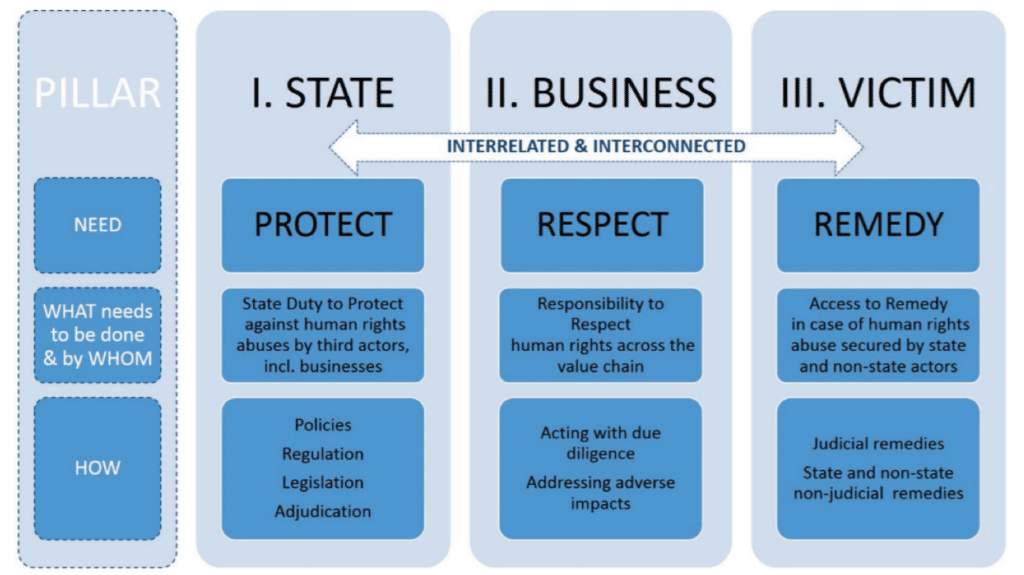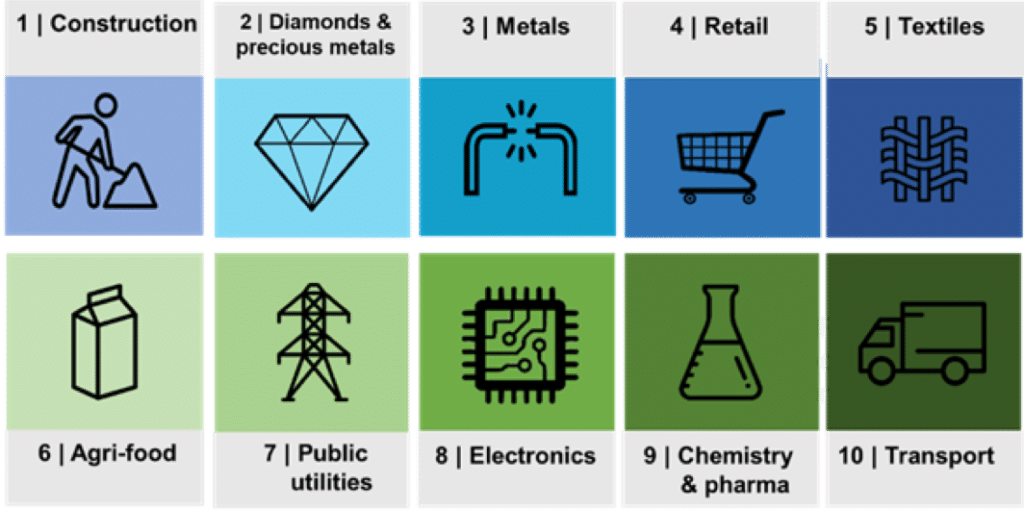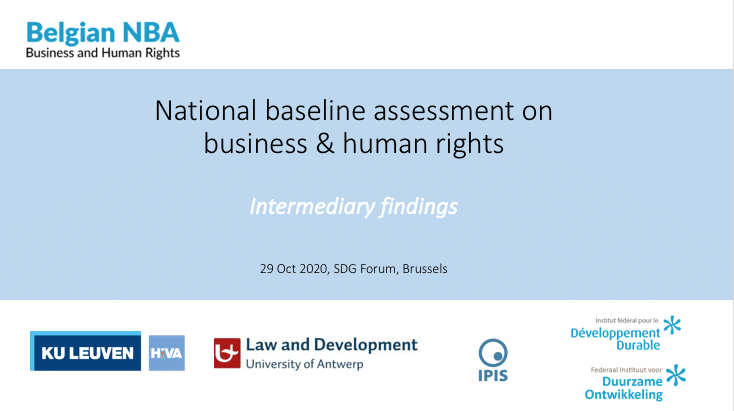On October 29th, researchers from the University of Antwerp, the University of Leuven and IPIS presented their intermediate findings on the Belgian National Baseline Assessment on Business and Human Rights (NBA) during a workshop of the Sustainable Development Goal Forum 2020.
The session was introduced by Hamida Idrissi, representative of the Belgian Federal Institute for Sustainable Development (IFDD/FIDO). She summarised the objectives of the NBA commissioned by the IFDD/FIDO and the Belgian ministry of Foreign Affairs. The NBA consists in assessing the level of compliance towards the United Nations Guiding Principles on Business and Human Rights in Belgium. The evaluation aims to inform the Belgian government and stakeholders on remaining gaps and recommendations to enhance the efficiency of the National Action Plan (NAP) on Business and Human Rights adopted in 2017. The final results of the NBA will be published early 2021.

Liliana Lizarazo-Rodríguez, assistant professor at UA (Law and development research group) presented the preliminary findings on the State Duty to Protect Human Rights, the first pillar of the UNGPs. The assessment is done through legal and policy analyses as well as multiple interviews. Lizarazo-Rodríguez highlighted that, while a lot of initiatives were undertaken to inform and disseminate the requirement of the UNGPs, structural measures remain to be taken.
The assessment on the compliance to the UNGPs second pillar, the Corporate Responsibility to Respect Human Rights is conducted by the HIVA research institute at KU Leuven. Prof. Dr. Huib Huyse and senior researcher Boris Verbrugge first detailed their methodology. Their assessment is based on a screening of the policies and processes of 30 Belgian companies, stakeholder consultations and a mapping of human rights violation cases involving Belgian businesses. Belgian companies seem to score relatively low with regard to the UNGPs requirement but the researcher insisted on the important of the size of companies in such evaluations. Indeed, their observation show that commitments towards human rights decline in the middle segment companies – with turnover between €50m and 750m – and are even lower for small and medium companies.

The third pillar of the UNGPs, Access to Remedy, touches on both procedure and substance through access to justice and access to an effective remedy. After underlining the difficulty to draw generalisations in this assessment, Liliana Lizarazo-Rodríguez mentioned some of the punctual activities undertaken. She concluded that more support should be dedicated to structural reforms and to assist Belgian companies implementing effective grievance mechanisms.
Finally, IPIS is evaluating the progress made by both the Belgian government and companies towards the respect of the UNGPs in Conflict-Affected and High-Risk Areas (CAHRAs). IPIS’ researcher Lotte Hoex highlighted some progress made by the Belgian state on this specific issue, but mentioned that more needs to be done to raise awareness on the heightened risks in conflict-affected areas and support companies in this regard, for example through the embassies in the relevant countries. In the minerals and metals sector there is some awareness of the heightened risks in conflict-affected areas, however, companies seem to have a narrow view of conflict-affected countries and are avoiding risks instead of mitigating risks.

The presentation of these intermediary findings was followed by a Q&A session to allow the public to interact with the researchers.
The powerpoint presentation is available on the website of the NBA:


